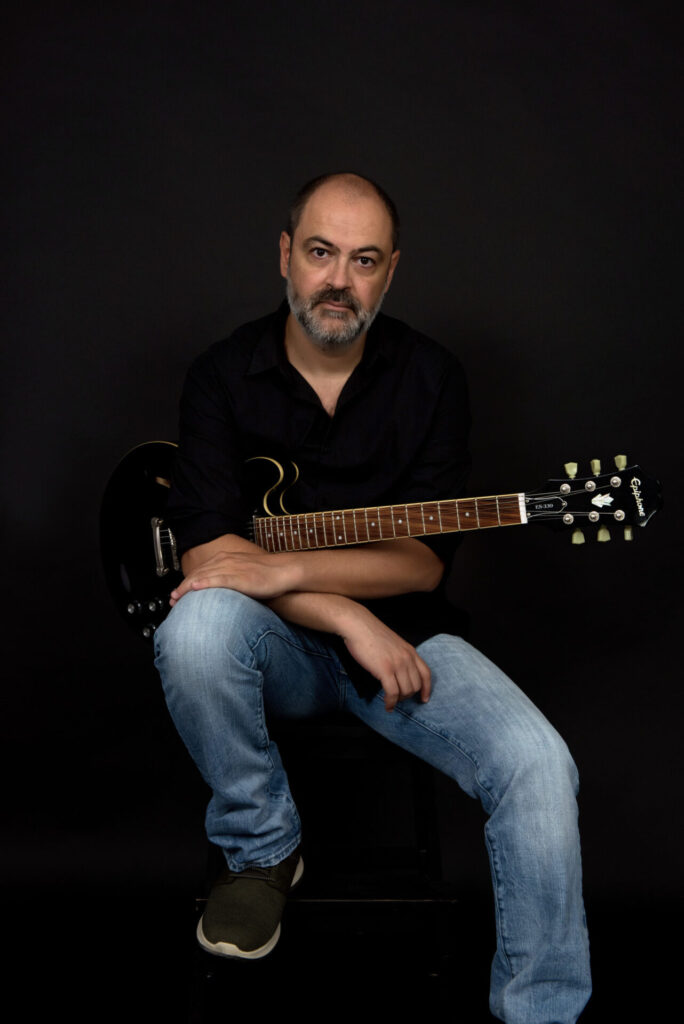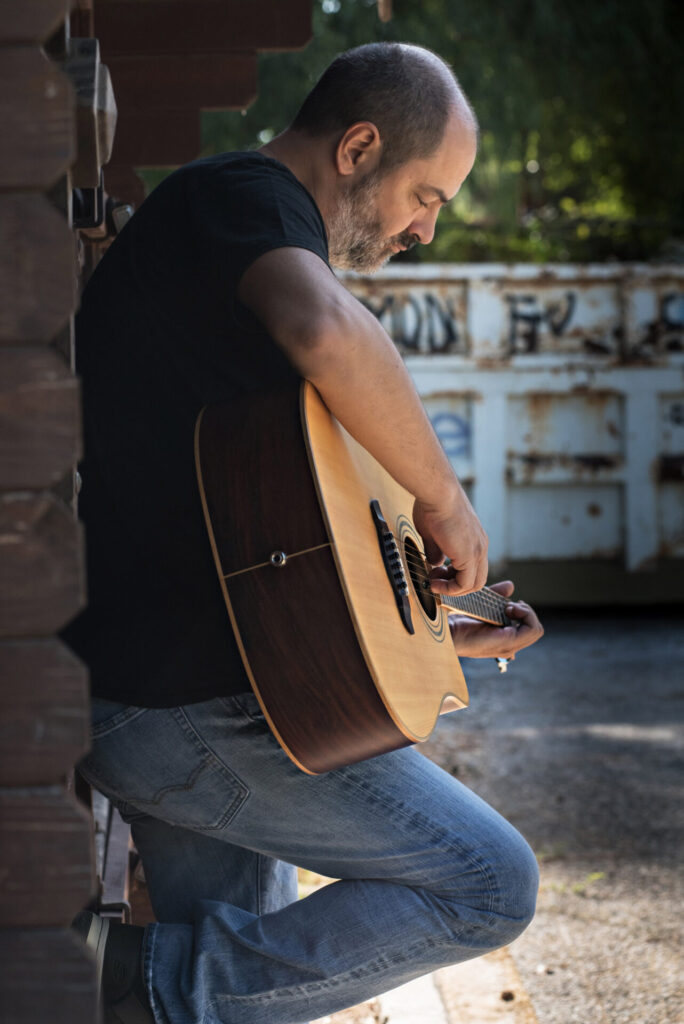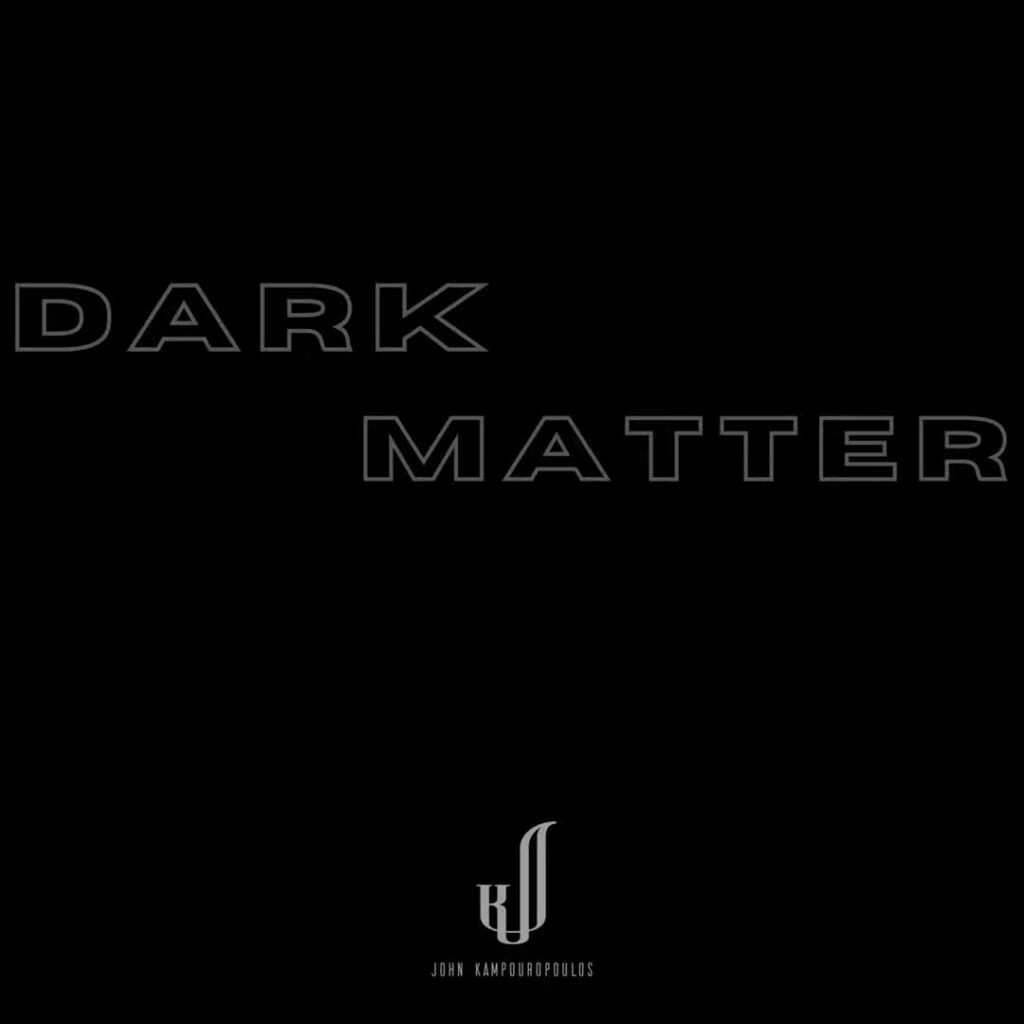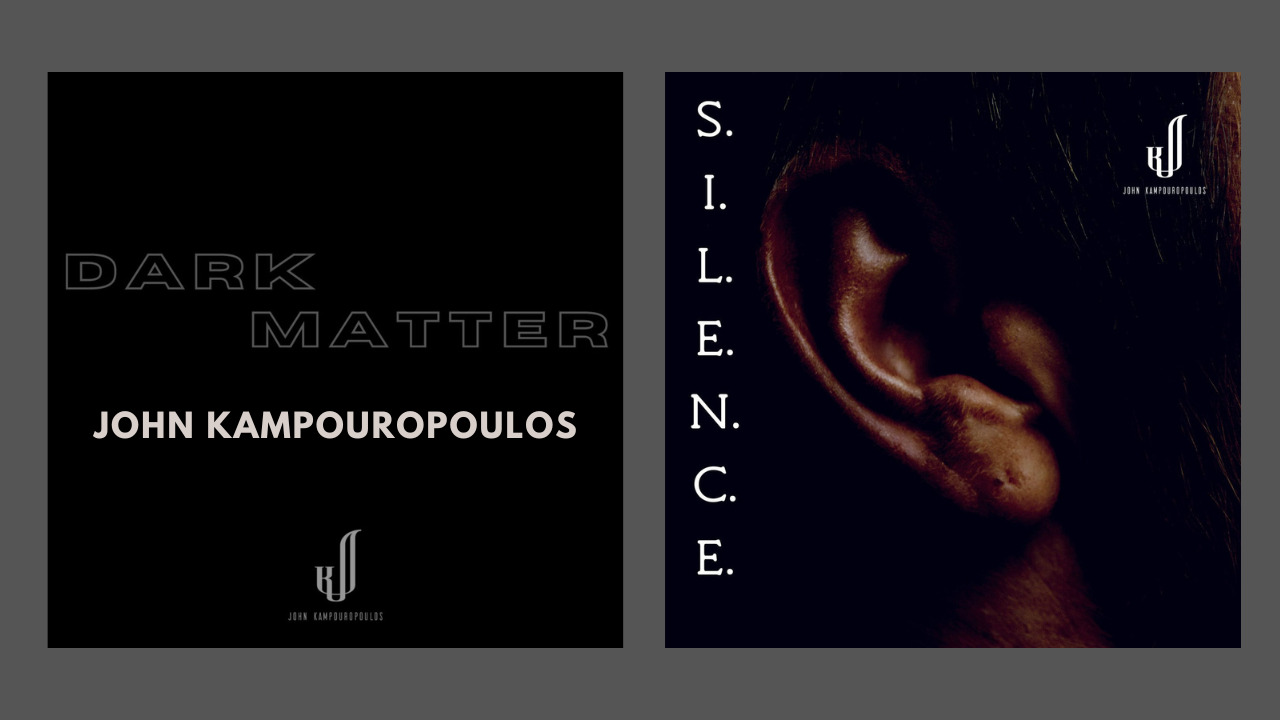John Kampouropoulos is a versatile performer and lyricist who weaves tales from the present, the past, and the future into a kaleidoscope of musical hues. Styles range from 1960s pop to 2000s indie, including The Beatles, David Bowie, Radiohead, Cornell, and Travis. Check out the exclusive interview below:

1. Can you tell us a bit about where you come from and how it all got started?
JOHN KAMPOUROPOULOS: I live in the suburbs of Athens, Greece. I used to be a “downtown Athenian”, but I somehow got attracted by the nature and the character of my hometown’s suburbs. In the same manner, when I was a kid, I felt I wanted to be a soccer player or a fighter pilot(!!), but as soon as I entered my teens, everything’s changed. It’s only a natural course of things, I might assume; both my parents were into music. Dad was a former Greek National Opera singer and a painter, mom was a soprano with many distinctive worldwide collaborations, and later became a vocal professor. I actually didn’t have to try hard to feel that musical energy surrounding me, both inside and outside. And even though singing was my very first actual contact with music creativity, I had to go through a 12-year period as a drummer in various local bands, all the while I composed, sang, arranged and recorded my own songs. My sound engineering diploma helped a lot – but that was quite later on. As years went by, I joined a famous local band, and sang in English. With that particular band, we made it to be signed with EMI/Chrysalis and had lots of tours, both nationwide and abroad. But that came to an end by 2002; I quit that band, and formed another. By 2012, I formed my own project, and by 2017 I have been going solo ever since. It’s definitely been -and still is- a hell of a ride!
2. Did you have any formal training or are you self-taught?
JOHN KAMPOUROPOULOS: Some people work double-shifts in order to be able to pay for their musical tuition fees. I had a vocal teacher at home -my mother- but never actually accepted her invitations for lessons. There was a short pass through some piano lessons, as well as percussions class. Everything I did, in terms of music, was under a self-teaching process. All except sound engineering and production. And if you ask me how was that possible, I can only accept the fact that I was stuborn and never agreed with that stern sense of being taught about an instrument with no broader aspect of the music itself. As if music and instruments were just scheduled drills we students had to pass. Maybe it was something about the times, back then. I really don’t know – and doesn’t really matter to me now.
3. Who were your first and strongest musical influences and why the name ‘JOHN KAMPOUROPOULOS?
JOHN KAMPOUROPOULOS: I’d expect that kind of question! Well, first of all, the need to use my birth name, even though it may sound completely “greek” to many foreign friends, as well as difficult to pronounce, it was the only brand name I could think of that was actually 100% unique and mine. Everybody can name theirselves as “John Raven” or “The boy with the glasses”, and everywhere in this Earth there will be “a boy with glasses” and a guy “John Raven”. But John Kampouropoulos is just me – and trust me, I know my relatives’ names very well, so I can guarrantee there’s no other! But seriously; choosing a name -or brand name, for that matter- is not easy. The name represents the artist’s entity. Only Prince (the artist formerly known as) had the courage to impose a change in his name, while in the zenith of his career. By the way, that band I used to be in, back in the day, its first name was “Nirvana”. They changed it to something else, as one year later Cobain’s “Nirvana” hit the charts. To sum it up, my name is me and my music is strongly associated with my entity. My first musical influences was classical music – mostly an influencial consequence derived by my parents’ collection and listening preferances. For example, I know of Boris Christoff’s staggering opera performances, long before I listened to the Beatles. Mozart, Verdi, Rossini, Wagner, Beethoven, Bach, Vivaldi, Purcell, Strauss, and all these magnificent guys’ music, has been etched on my skin. Then came the revered Greek composers, such as Hatzidakis, Theodorakis, Markopoulos, Savvopoulos, who were my native-speaking influences. Then came the rock and roll and rock music of the 50’s-60’s (Elvis, Little Richard, the Supremes, the Platters, the Beatles, the Animals, the Yardbirds, Pink Floyd, Cream, Spooky Tooth, Janis Joplin, Jimi Hendrix, the Doors, etc) and then the list includes the 80’s music and the 90’s music. Last but not least, pop music and heavy metal were on my list too, as I have been a long-time admirer of Iron Maiden, Judas Priest, DOKKEN, and I surely like to relax with Madonna, Cindy Lauper, Eurythmics, the Bangles, Tanita Tikaram, Duran Duran, A-Ha, Tears for Fears, Prince (well, not so pop, actually…) and others. Oh, did I mention U2, Dire Straits, James, and Porcupine Tree? You can add some Swamp Blues too; “Blind Owl” Wilson is one of my favourite singers and songwriters.
4. What do you feel are the key elements in your music that should resonate with listeners, and how would you personally describe your sound?
JOHN KAMPOUROPOULOS: It’s the storytelling and the vocal performance. Next comes the diversity of my music, which contains elements for all tastes. This might seem like a loophole of not being able to be easily “tagged” to a specific genre or musical sound, but I feel that freedom has no colours, no boundaries and no titles on which is based upon. And Art should be that repersentative of freedom and the ability to express different ideas, feelings, and visions to the people.

5. Do you feel that your music is giving you back just as much fulfillment as the amount of work you are putting into it or are you expecting something more, or different in the future?
JOHN KAMPOUROPOULOS: Mentally, yes. It’s a huge feeling of happiness and completion, whenever people do relate to my music and stories. It’s a blessing, knowing that somebody, somewhere, that doesn’t know me, is not my friend or whatever, actually wakes up in the morning and feels the need to listen to one of my songs. Or maybe while returning home from work. Or even while having a relaxing time with their loved ones. Apart from the mental fulfillment, there is the need to be able to continue working as an indie creator, and this is where things get a bit foggy. As a general definition of art, working overtime, both mind and body, is a normal status quo. Art cannot be restricted to timetables; I know fellow songwriters that wake up in the middle of the night, because they had a brilliant idea for a song, and they rush in to their studio and start working until late next day. It might sound a bit dogmatic, but “working hours” is something non-existing in terms of Art. It’s all about inspiration, design, execution, realisation and final impact. Nobody would want to know how many years a forest needed to grow, but everybody enjoys being there, walking, or just promenading. I would be a liar if I said I didn’t care about benefits, or maybe a wider future acknowledgement, but I know these things do take time. Efforts must always be combined with a down-to-earth attitude, as we’re 6 billion people living in this planet. Nobody said it was easy in the first place.
6. For most artists, originality is first preceded by a phase of learning and, often, emulating others. What was this like for you? How would you describe your own development as an artist and music maker, and the transition towards your own style, which is known as what exactly?
JOHN KAMPOUROPOULOS: This is only the natural course of things. We need to learn how to crawl in order to stand up, then we need to learn to balance in order to learn how to make our first steps. Walking comes before running, and over time we can move around in our own way. For me, this transition took some years to complete. I had to actually devour every single musical genre from the songs I used to sing or just listen to, in order to possess this knowledge. What it’s obvious to me -and I think many people notice it too- is that it’s very easy to just remain in the emulation. The musical osmosis needs time and the will to go deeper, and create something that depicts an originality – at least in the best possible way. There has been too much music created in such a short time, for someone to claim their music being “100% original”. Music has its own DNA, and that very DNA is passed along in the next generations, like every living organism in this planet. But creating “clones” it’s easy only on the outside; even “clones” have their own soul and deeper characteristics. And since music creators are not genetists, the outcome is, to say the least, indifferent in comparison with a living being as a clone.
7. What’s your view on the role and function of music as political, cultural, spiritual, and/or social vehicles – and do you try and affront any of these themes in your work, or are you purely interested in music as an expression of technical artistry, personal narrative, and entertainment?
JOHN KAMPOUROPOULOS: I deeply respect all of these roles, to be honest. My interest lies in the sharing of a story, of a possible (and where needed) technical artistry, sometimes a personal narrative -or at least something that looks like a personal narrative, but contains wider ideas. I wouldn’t describe my music as “entertainment”. More as something to listen to and let yourself feel and trip with the story. Or maybe just be able to like the melody, and forget about all other tricky details. If I wasn’t me, I would love to be able to write songs about politics, about society, about all aspects of humanity as an every day life impact. But I’m keeping this urge for my sci-fi books (still in Greek, but looking forward to translate them in English). I’m a lousy social songwriter, and my only contribution in that field was a song about the 108 victims -including a relative- of a fire in Greece.
8. Could you describe your creative processes? How do usually start, and go about shaping ideas into a completed song? Do you usually start with a tune, a beat, or a narrative in your head? And do you collaborate with others in this process?
JOHN KAMPOUROPOULOS: I usually work alone. The creative process starts with an idea of a song, melody only. I sing the melody while playing the guitar – or, in some cases, I program the piano melody and sing along. That process has expanded to creating a song from scratch, melody only, full arrangement, and then add the lyrics. Lyrics always come last, because I feel like fitting words to the mood of the song better. I only have two songs that started with the lyrics first. Sometimes, e.g. the case of the album “Freaks of Nature” or the EP “Hero and A Crucifix” or the latest EP “Dark Matter”, the concept already existed in my head; the narrative. “Freaks…” was an album dedicated to the fictional heroes and their stories, derived from my sci-fi saga. “Hero…” was more of a personal experience depiction, as well as “Dark Matter”, but the latter delved into deeper quests, such as the values of gain and loss in life, the oddities of having a family and how’s that resonating to both partners in terms of their romance, etc. Production is key element, as I consider this invaluable process as high as the song creation itself. Production is art, and by self-producing my songs, I make sure my style gets across more clearly, as a whole. Collaboration is good, but mostly as a contributor to other projects. My art is quite shaped in my creative imagination, so I only want to get it done by myself. Besides, I’ve been there, and done that. It was a quite interesting challenge, most of the times.
9. What has been the most difficult thing you’ve had to endure in your life or music career so far?
JOHN KAMPOUROPOULOS: The most difficult thing I had to endure -and am still enduring- is the harsh reality of creating music and living a normal life! Everybody loves an artist, but when they share the same house, life can be completely different than the ordinary. People are accustomed to sharing a common image, regarding artist. But in reality, we are as much human, as everybody else – with a twist. Most artists approach life in a much more different way, which seems attractive when seen from the outside, but difficult when lived on the inside. In terms of tolerating things mentally, this is an ongoing procedure; as artists, we need to balance between our urge and feelings, and the need to sustain ourselves. New era in the music industry has opened many doors, but not all of them lead to success. In fact, there are just a handful of them that serve the purpose. Indie artists are still being treated as target consumers of a variety of professionals, who claim they serve Art, but in fact they only cover the same space the old indusrty had been covering for the past 50 years.
10. On the contrary, what would you consider a successful, proud or significant point in your life or music career so far?
JOHN KAMPOUROPOULOS: Every day as an artist is significant. Challenges and thrills are daily basis. My proudest moments are yet to come, even though I’ve had my fair share of special moments. But if I had to name just one significant moment, I would describe my loss of hearing on my left ear. As shocking as it’s been -and still is- for a musician, it was as revealing, and a means to re-assess and reconsider many things, including personal goals, the meaning of success, the financial comfort, the prospects, the aspirations. It’s a test for both soul and body. Both ears hear everything; one ear only hears what needs to be really heard. And that, I believe, is a blessing.
KEEP IN TOUCH:
FACEBOOK | INSTAGRAM | TWITTER | SPOTIFY | BANDCAMP | WEBSITE | YOUTUBE

